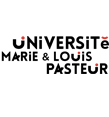Regeneration and Empathy: Elements of Philosophical Botany in Francis Bacon’s Medicine and Natural History
Guido Guilioni (Università di Macerata)
AbstractThere are two main aspects in Bacon’s research concerning the relationship between vegetative life and vegetal nature: one is of a more philosophical character and regards the ability manifested in plants to regenerate themselves; the other, which is associated with the medical practice, studies the effects of botanical remedies within the domain of materia medica. Bacon hints at the idea of self-regeneration in plants in various of his works, especially the Historia vitae et mortis (1623) and the Sylva Sylvarum (1626), but he does not offer a comprehensive explanatory model to shed light on this particular aspect of natural life. Indeed, it should be said that, regarding regeneration, Bacon’s position remains largely indebted to the principles of Aristotelian biology. By contrast, in a series of specific instructions concerning the use of herbal remedies, Bacon proposes original pharmacological guidelines based on his model of vital spirits as both builders and wreckers of living bodies. The efficacy of plants in prolonging life when taken as food or drugs is predicated on a comprehensive idea of reactive matter in which the link between vegetable nature and the various degrees of vitality in the created universe depends on specific responses enacted by natural – that is, unconscious and involuntary – faculties. In other words, vegetable materia medica is combined with what I would call the art of vegetative persuasion (how to stimulate the involuntary functions of growth and digestion).

